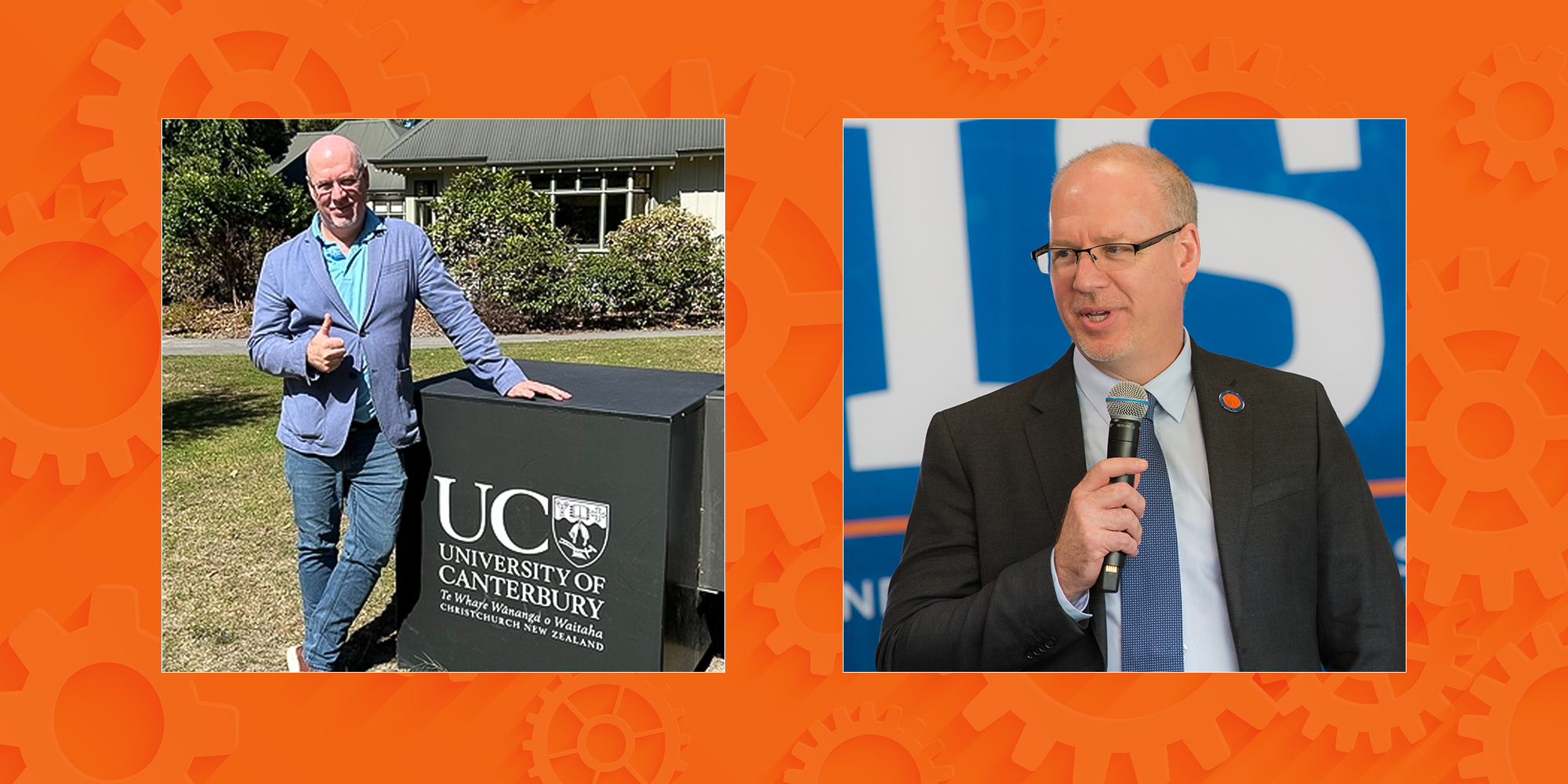At the end of 2023, David Kaber, Ph.D., completed his service as the chair of the Department of Industrial & Systems Engineering (ISE) at the University of Florida. With his departure, Dr. Kaber elected to take research leave for the current spring and pending summer terms. He applied for and received a prestigious Erskine Visiting Fellowship from the University of Canterbury (UC) in Christchurch, New Zealand. This program provides support for senior international academics to lecture at UC each year.
Dr. Kaber proposed a course on Advanced Human-Computer Interaction (HCI) Modelling to the UC Computer Science & Software Engineering (CSSE) Department. The Department and Erskine Program accepted Dr. Kaber’s proposal and requested he work with UC CSSE Ph.D. students during a four-month visit to the South Island of New Zealand.
Dr. Kaber and his family (partner Soyun and five-year-old daughter, Claire) traveled to New Zealand in early March. Dr. Kaber is currently preparing lectures on human information processing, constructs of human cognition, measures of mental workload, cognitive task analysis methods, cognitive performance modeling tools, physiological correlates of cognitive workload, and systems design for cognitive demands. The lecture content will be made available for fourth year (senior) UC students through online resources. It will also provide a basis for a similar future course for UF.
In addition to new course development, Dr. Kaber is currently collaborating with Christoph Bartneck, Ph.D., associate professor, in supervising CSSE Ph.D. students in human-robot interaction (HRI) research along with UC faculty from CSSE, the Psychology Programme and the Philosophy Department.
“The research the UC students are conducting is at the cutting-edges of the HRI discipline and is definitely pushing me to go beyond my comfort zone from workload and situation awareness analysis,” Dr. Kaber said.
One student, B. Lebrun, is studying whether humans perceive “phantom (hidden) costs” in introductory interactions with humanoid AI robots as compared to other humans engaging in scenarios in which “a deal might be too good to be true.” Dr. Kaber said Lebrun is exploring a future of AI agents in which robots can act as sales representatives for companies, and the question posed is whether people will be more or less suspicious of robots when, for example, buying a new car. He commented that the scenario is not so far-fetched given the pace of AI development today.
Another UC CSSE Ph.D. student, M. Wang, is investigating a philosophical theory that humans interacting with humanoid robots may ascribe certain human-like qualities to the robots and exhibit virtuous behaviors toward them. These behaviors may be akin to human-to-human interaction but might look strange or misplaced to another human witnessing such interaction involving a robot. Dr. Kaber said that the theory is one of ethical asymmetry, suggesting that people do not expect others to praise a robot for “good behavior” in the way that they would expect someone to complement another person for a good job. The UC student is attempting to develop evidence of what Dr. Kaber called “situational ethics in HRI,” relative to human-to-human interaction.
A final student, S. Temstin, is conducting an experiment to execute the Turing test of machine intelligence for ChatGPT 4. Turing originally authored the test as a three-person game with a machine, human player and interrogator. The objective of the study is to determine if ChatGPT 4 can pass the test with faithful adherence to Turing’s novel protocol. Dr. Kaber said that despite many prior applications of the Turing “imitation game”, few (if any) have actually executed the test according to Turing’s original report. He said the problem is that over the years, there have been many claims in the media that various technologies have actually passed the test. With this, Dr. Kaber said they intend to test ChatGPT 4 with experimental rigor.
In summary, Dr. Kaber said the HRI research projects being conducted at the UC CSSE Department are highly intriguing and truly require an interdisciplinary approach where one needs to learn the technical language and theoretical foundations of other disciplines. Although this can be very challenging and occasionally time consuming, Dr. Kaber said learning about other areas of science and the methods that are applied can help engineers to be more comprehensive in analysis and at developing bases for effective human-system designs.
“Sometimes you have to go out of your comfort zone and even wonder whether you are making effective use of your time in order to gain new knowledge that might ultimately have relevance/importance to what you do, although you might not see it right away,” Dr. Kaber said.
His UC Erskine Visiting Fellowship runs until June 10, covering the University’s Semester one timeframe. He will continue to serve as a member of three UC Ph.D. student committees and anticipates important publications from their research.
“The UC Erskine Programme is tremendously supportive of visitors and the UC faculty and students are leading scholars,” Dr. Kaber said.
He is grateful to have the opportunity to visit Christchurch and the Institution. Dr. Kaber and Iris V. Rivero, Ph.D., current department chair and Paul and Heidi Brown Preeminent Chair in ISE, plan to work together to propose a new collaborative scientific and/or academic exchange program with UC to create additional future research and study opportunities for faculty and students. Dr. Kaber will complete his research leave at the close of this summer.
Brady Budke
Marketing and Communications Specialist
Herbert Wertheim College of Engineering
